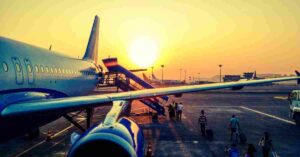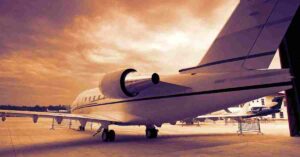Numerous Professional Routes Open to Graduates
Alumni of the Aviation Institute of Maintenance (AIM) can pursue a wide range of professions in the aviation sector. for finishing their training, students can go for careers like these:
An aviation maintenance technician is in charge of inspecting, mending, and maintaining aircraft systems to make sure they adhere to performance and safety requirements.
An expert in maintaining and repairing an aircraft’s electronic equipment, such as its radar, communication, and navigation systems, is an avionics technician.
A dual certified technician who can work on the engines and the airframe of an aeroplane is known as an airframe and powerplant mechanic.
The maintenance supervisor is in charge of the teams that execute maintenance, making sure that everything is done correctly and on time.
The quality control inspector makes sure that all maintenance is done in accordance with industry standards and safety laws.
Technical writers create maintenance manuals and documentation for aeroplanes, as well as safety guidelines.
Graduates have significant value in the employment market because these positions are essential to preserving the efficiency and safety of the aviation sector.
Expectations about Industry Demand and Salary for Aviation Maintenance Technicians
There is a significant and expanding need for qualified aircraft maintenance technicians. Industry reports state that an ageing workforce and increased international air travel are to blame for the severe technician shortage facing the aviation industry.
Job Outlook: Employment prospects in aviation maintenance are expected to rise steadily, according to the Bureau of Labour Statistics. The requirement for regular maintenance and repairs as well as the growing number of aircraft in operation are the key drivers of this demand.
Expected Salary: Technicians who maintain aircraft can anticipate earning competitive pay. While skilled technicians and those in specialised areas might make upwards of $80,000 to $100,000 yearly, entry-level employment typically give wages ranging from $45,000 to $60,000. Higher remuneration and additional benefits are common in management and supervisory roles.

Aviation’s Future: Trends and Forecasts
Examining Upcoming Aviation Industry Trends
The aviation sector is always changing due to new developments in technology, environmental concerns, and shifting customer preferences. The following are some major trends influencing aviation’s future:
Technological Innovations: The incorporation of cutting-edge technology like augmented reality (AR), the Internet of Things (IoT), and artificial intelligence (AI) is revolutionising and improving aviation maintenance processes.
Sustainable Projects: The need to lessen aviation’s negative environmental effects is becoming more and more apparent. This covers the creation of engines with higher fuel efficiency, the application of sustainable aviation fuels (SAF), and the adoption of environmentally friendly maintenance techniques.
Urban Air Mobility: As electric vertical takeoff and landing (eVTOL) aircraft and urban air mobility (UAM) become more common, maintenance workers will face both new opportunities and difficulties.
How AIM Equips Students for the Changing Aircraft Industry
When it comes to educating kids for these upcoming trends, AIM is leading the way. The institute updates its curriculum on a regular basis to reflect the most recent developments in technology and business procedures. Modern equipment is used for hands-on instruction, and knowledgeable instructors who are up to date on industry standards instruct the students.
Furthermore, AIM teaches students on the most recent advancements in green technology and eco-friendly methods, emphasising the significance of sustainability in aviation maintenance. AIM makes sure that its graduates have the know-how and abilities needed to succeed in a quickly evolving aviation sector by staying ahead of industry trends.
Aerospace Maintenance Administration: Exceeding the Technician Position
Examining Aviation Maintenance Management Careers
A fulfilling career path in aircraft maintenance management is available to anyone who want to go beyond technician positions. Jobs in this sector include:
The maintenance manager is responsible for supervising all maintenance tasks, guaranteeing adherence to regulatory guidelines, and overseeing maintenance personnel.
Operations Manager: In charge of scheduling, budgeting, and resource allocation as well as the general management of the maintenance department.
A quality assurance manager makes sure that maintenance practices and results adhere to the strictest safety and quality standards.
These positions are perfect for seasoned professionals looking to develop in their careers because they call for a blend of strong leadership abilities and technical knowledge.

Education and Experience Needed for Industry Leadership Positions
A combination of managerial and technical abilities is required for success in aircraft maintenance management. Important proficiencies consist of:
Technical expertise involves a thorough comprehension of aircraft systems, maintenance protocols, and legal specifications.
Leadership and Communication Skills: The capacity to manage conflicts, lead teams, and communicate effectively.
Strong analytical abilities to recognise and effectively address maintenance concerns are a prerequisite for problem-solving.
Business acumen is the understanding of strategic planning, resource management, and budgeting.
Offering courses and advanced training programmes in aviation maintenance management, AIM equips students with the knowledge and abilities required for success in leadership positions. These courses ensure that graduates are qualified to assume managerial roles in the aviation sector by covering subjects including organisational management, quality control, and maintenance planning.
By emphasising these broad subjects, AIM not only gets students ready for the workforce right away, but also gives them the tools they need to succeed in the fast-paced field of aviation maintenance in the long run.
